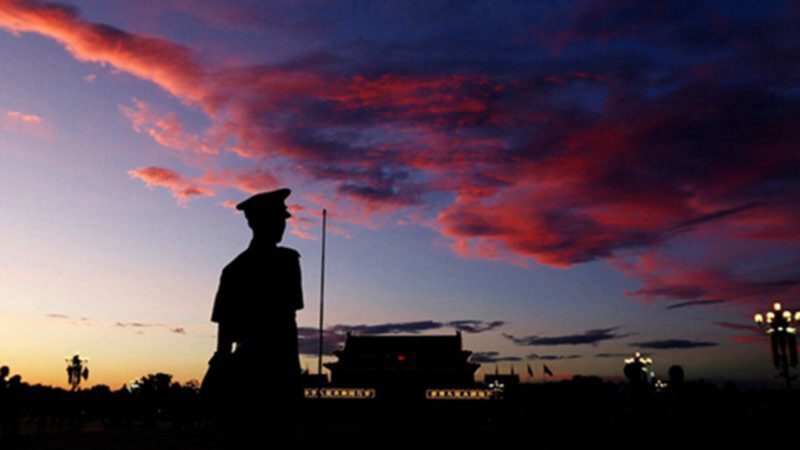[NTD News November 20, 2021 Beijing time]Just after the Sixth Plenary Session of the Central Committee of the Communist Party of China has just concluded, Zhongnanhai released a weird signal. The Political Bureau of the Communist Party of China called for “political security” and the Ministry of Public Security also revised the police oath, putting “defending political security” in the first place. . According to the analysis of commentators, this implies that Xi Jinping’s regime is not safe, and highlights the seriousness of the internal strife of the Chinese Communist Party.
One week after the end of the Sixth Plenary Session, the Political Bureau of the Communist Party of China held a meeting on November 18 to review the “National Security Strategy”. The meeting was presided over by the General Secretary of the Communist Party of China Xi Jinping.
The Chinese Communist Party media Xinhua News Agency reported that the meeting put “political security” in the first place and mentioned the security of state power, system, and ideology.
This “Strategy” introduced only 732 words, but the word “security” appeared 42 times. “Political security” was put in the first place, and it emphasized that “the party’s absolute leadership must be upheld.” Current affairs commentator Tang Jingyuan told NTDTV that the so-called political security refers to the security of the regime, which actually refers to the security of Xi Jinping’s power.
Epoch Times commentator He Ping wrote an article that this “Strategy” highlights the seriousness of the CCP’s high-level internal fighting.
The party media report also said that Xi Jinping stated at the meeting that “to achieve this kind of security”, the premise is that “the party’s absolute leadership must be upheld and the centralized, unified, efficient and authoritative leadership system for national security work must be improved.”
Li Muyang, the host of the “News Highlights” program, believes that “to be achieved” means that it has not yet been achieved, or at least it means “not fully achieved.” In other words, Xi Jinping’s regime is not safe.
Xi Jinping kept purging the political and legal system, and the high-ranking public security officials who were sacked one after another. Not long ago, he also replaced the director of the Zhongnanhai Security Bureau, breaking the practice of selecting and upgrading from the Security Bureau and directly transferring personnel from the field army. These are all considered to be manifestations of Xi Jinping’s sense of insecurity.
In addition, the Ministry of Public Security of the Communist Party of China recently revised the police oath, which seems to be a proof of strengthening Xi Jinping’s security. The pledge changed from “to be loyal to the party” to “support the absolute leadership of the Communist Party of China”; from “to maintain the overall stability of the society” to “to defend political security.”
Li Muyang said, “This is obviously out of the need to maintain the security of the regime and is a product of the CCP’s power struggle. The CCP needs to use this brainwashing thing to require the police to show loyalty to the party and Xi Jinping.”
Epoch Times commentator He Ping believes that the new oath is an amulet of loyalty, probably because the public security political and legal system is eager to make an oath with Fu Zhenghua, Sun Lijun, Deng Huilin, Liu Xinmin, Luo Wenjin and other groups.
In addition, the Politburo meeting on November 18 introduced the fields of “security” almost everywhere: political security, economic security, social security, technological security, food security, energy and mineral security, important infrastructure security, overseas interests Security, food and drug security, biosecurity, network security, data security, artificial intelligence security, epidemic security, sovereignty security, global security, etc.
He Ping said that this so-called “National Security Strategy” exposes that the CCP is in an ambush on all sides, and it is in panic.
Both the top CCP and the Ministry of Public Security put political security first. At the same time, the Minister of Public Security Zhao Kezhi was removed from the post of party secretary on the 19th and was replaced by Xi Jinping’s close associate Wang Xiaohong.
Current affairs commentator Tang Jingyuan believes that this shows that from now until Xi Jinping reaches the 20th term, his focus is to further purge the opposition and consolidate his power. He will use political high pressure to replace judicial governance and establish a politically colored rule system similar to that of Mao Zedong.
(Reporter Luo Tingting Comprehensive Report / Chief Editor: Wen Hui)
The URL of this article: https://www.ntdtv.com/gb/2021/11/20/a103273419.html
